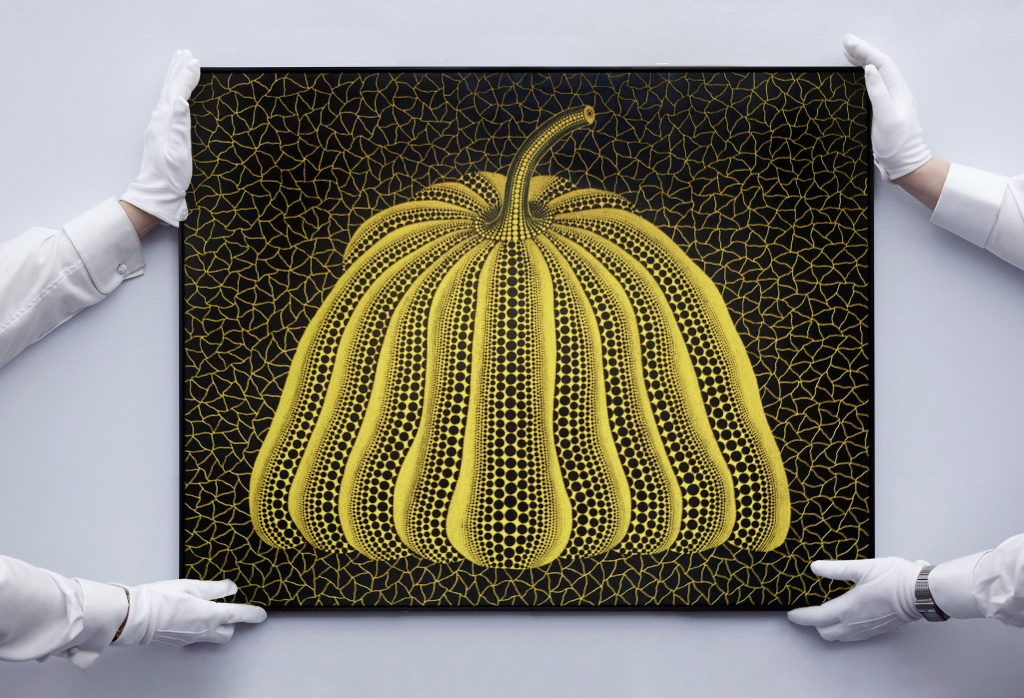Market
Masterworks, a Company Offering Fractional Shares of Major Artworks, Is Now Valued at Over $1 Billion
The company, which now counts top collector Glenn Fuhrman among its investors, is officially the first art-startup unicorn.

The company, which now counts top collector Glenn Fuhrman among its investors, is officially the first art-startup unicorn.

Taylor Dafoe

Masterworks, a members-only investment platform that sells fractional shares of major artworks, announced this week that it has raised $110 million in Series A funding and secured a staggering valuation of more than $1 billion.
That figure puts the company among the ranks of the most valuable in the art world—and earns it the distinction of a “unicorn” in Silicon Valley parlance.
Founded in 2017, the New York-based startup has risen to prominence—and been greeted with some skepticism along the way—based on its promise to democratize investment opportunities in a notoriously unregulated market.
Masterworks’s pitch is that while top-level artworks—the Kusamas, Hockneys, and Picassos of the world, that is—have traditionally only been an investment consideration for the ultra-wealthy, the company offers ownership options at a much lower price point. It acquires blue-chip pieces, registers them with the Securities and Exchange Commission, then offers fractionalized shares of each.

Masterworks founder Scott Lynn. Courtesy of Masterworks.
“The result,” Tim Schneider wrote in a deep dive into Masterworks for Artnet News Pro published this spring, is that “everyday people can own, say, one half-millionth of a certified original Jean-Michel Basquiat painting for a mere $20.”
New York-based venture fund Left Lane Capital took the role as lead investor on the Series A; Galaxy Interactive and Tru Arrow Partners also contributed. The latter company is co-founded by one of the world’s top collectors, Glenn Fuhrman, founder of the FLAG Art Foundation.
“I believe there is a very large universe of investors who would like to benefit from the long term appreciation of high quality art but do not have the ability to own a masterwork on their own,” Fuhrman told Artnet News in an email.
Announcing our $110 million Series A funding valuing Masterworks over $1 billion! @danprimack
See disclosure: https://t.co/0xp7h4Fm0C
https://t.co/AzzfqecH6x— Masterworks (@MasterworksIO) October 5, 2021
The idea has proven to be popular indeed. As of this month, more than 200,000 people have signed up for Masterworks, according to ARTnews, with 15,000 having purchased shares traded on the platform. The business’s CEO, Scott Lynn, added to Axios that the company expects to buy nearly $400 million of art this year and closer to $1 billion in 2022.
Lynn has claimed that Masterworks’s track record makes it likely “the biggest buyer in the art market.”
Some have criticized elements of Masterworks’s business model, including its fee structure (10 percent built into the initial offering of any work; a 1.5 percent for every year a work is held by Masterworks; and a 20 percent fee on the profit when a work is resold). They’ve also questioned whether it is possible for a company to buy art—an asset that is by definition supply constrained and inconsistent in quality—on such a large scale and still steadily make a profit.
The race is on. As of May 2021, Masterworks had purchased more than 40 works for over $150 million to date, but sold only one artwork: a Banksy painting titled Mona Lisa, whose shares it collectively offered to members for $1,039,000 in October 2019. Masterworks sold the painting in October 2020 for $1.5 million.